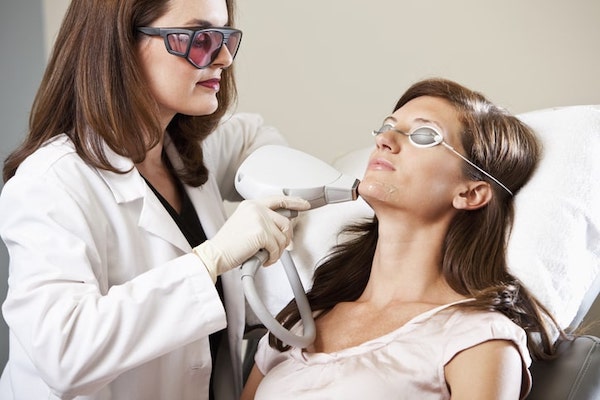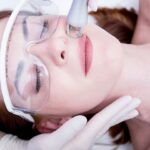Acne is one of the most common skin concerns worldwide, affecting teenagers and adults alike. From stubborn pimples and blackheads to cystic acne, these skin issues can significantly impact confidence and self-esteem. While topical treatments, oral medications, and lifestyle changes have been widely used, many people are now turning to advanced solutions like laser skincare. But can these treatments truly address acne effectively?
In recent years, Laser Skincare Treatments in Dubai have gained immense popularity among individuals seeking clearer skin without invasive procedures. The appeal lies in their ability to target the underlying causes of acne rather than just masking symptoms. Unlike traditional methods, laser treatments focus on reducing excess oil production, eliminating acne-causing bacteria, and stimulating the skin’s natural healing processes. This multifaceted approach makes them particularly effective for persistent or severe acne that doesn’t respond well to conventional treatments.

How Lasers Target Acne
Laser treatments work by emitting concentrated beams of light that penetrate the skin to reach specific layers. For acne, lasers are designed to target sebaceous glands, the small oil-producing structures responsible for clogged pores. By reducing the activity of these glands, laser therapy helps decrease the formation of pimples and prevent future breakouts.
Another crucial benefit of laser therapy is its antibacterial effect. Certain types of lasers can destroy Propionibacterium acnes, the bacteria that contribute to inflammation and pus formation. This not only helps clear active acne lesions but also reduces redness and swelling, offering a smoother and more even skin texture.
Additionally, lasers can stimulate collagen production, which is essential for healing acne scars. Collagen helps repair damaged skin tissue, making it an excellent preventive and corrective measure for post-acne marks. This means that beyond treating current breakouts, laser treatments can improve long-term skin appearance, leaving it healthier and more resilient.
Types of Laser Treatments for Acne
Several laser technologies are used to combat acne, each with unique advantages.
-
Fractional CO2 Lasers: These lasers create micro-injuries in the skin to encourage natural healing and collagen production, making them ideal for acne scars.
-
Pulsed Dye Lasers (PDL): These are particularly effective for reducing redness and inflammation associated with active acne.
-
Blue Light Therapy: This non-invasive option targets acne-causing bacteria directly, helping reduce the frequency and severity of breakouts.
-
Nd:YAG Lasers: Known for deeper skin penetration, these lasers reduce sebaceous gland activity and are suitable for more severe acne cases.
Choosing the right laser depends on skin type, acne severity, and specific concerns, but all options aim to reduce active acne while improving overall skin health.
Advantages Over Traditional Treatments
One of the most compelling reasons people turn to laser therapy is its efficiency. Unlike topical creams that may take weeks or months to show results, laser treatments often yield noticeable improvements within a few sessions. Moreover, laser therapy minimizes the risk of side effects commonly associated with oral medications, such as stomach issues or hormonal imbalances.
Laser treatments also offer precision. Dermatologists can target affected areas without damaging surrounding healthy skin, which is particularly important for sensitive or scar-prone skin types. This focused approach ensures faster healing, less irritation, and better long-term outcomes compared to generalized treatments.

Post-Treatment Care and Considerations
After undergoing laser therapy, proper skincare is essential to maximize results. Patients are typically advised to avoid excessive sun exposure and to use gentle cleansers and moisturizers. Staying hydrated and following a balanced diet can further support skin recovery and maintain results. While some redness or mild swelling may occur initially, these effects usually subside within a few days.
Consistency is also key. Multiple sessions may be required to achieve the desired outcome, depending on the type of acne and skin response. Regular follow-ups ensure that the treatment plan is adjusted as needed for optimal results.
Who Can Benefit From Laser Acne Treatments?
Laser treatments are suitable for various types of acne, from mild to severe. Individuals struggling with persistent inflammatory acne, cystic acne, or post-acne scars can particularly benefit. Even those who have tried numerous topical treatments without success often find laser therapy to be a transformative option.
Moreover, anyone seeking to improve overall skin texture, reduce redness, or prevent future breakouts may find laser treatments highly effective. While lifestyle changes and skincare routines remain important, incorporating laser therapy can significantly accelerate skin recovery and enhance long-term results.
In conclusion, acne can be a frustrating and confidence-shaking condition, but innovative treatments like lasers provide a promising solution. By targeting the root causes of acne, reducing bacteria, controlling oil production, and stimulating skin regeneration, Laser Skincare Treatments Dubai offer more than just temporary relief—they deliver a path toward clearer, healthier, and rejuvenated skin. For anyone struggling with stubborn acne, exploring laser therapy could be the key to achieving long-lasting results and renewed confidence.

